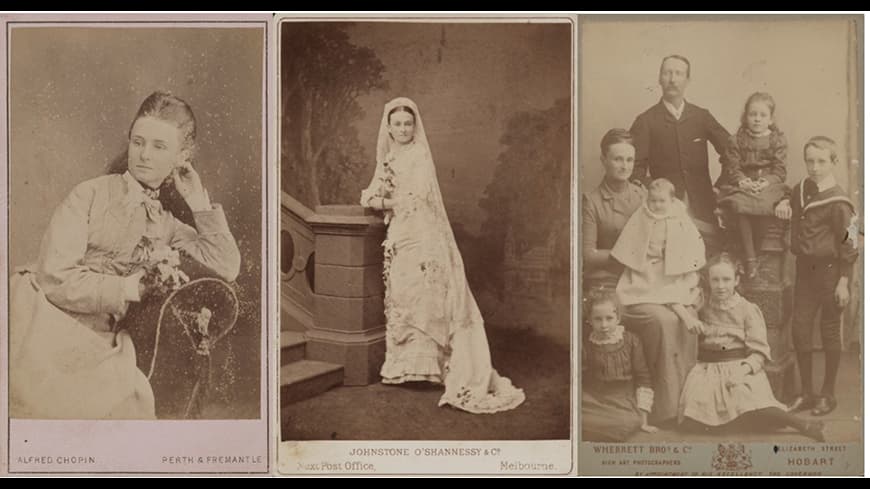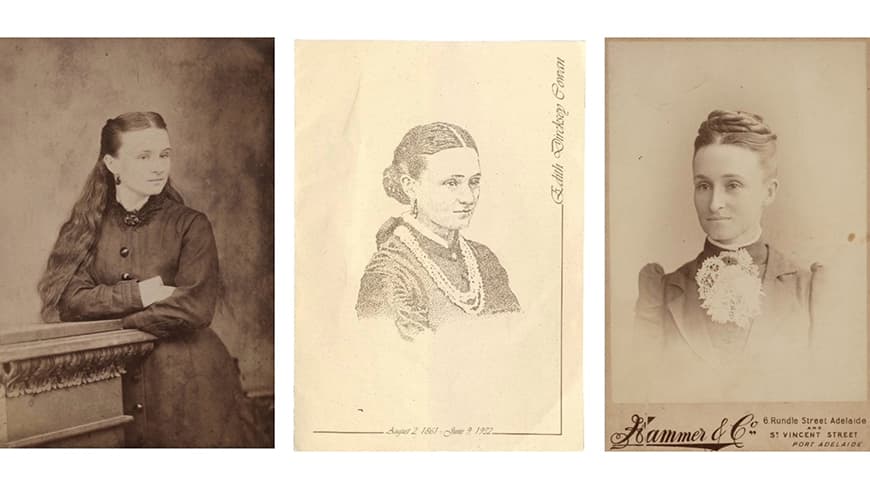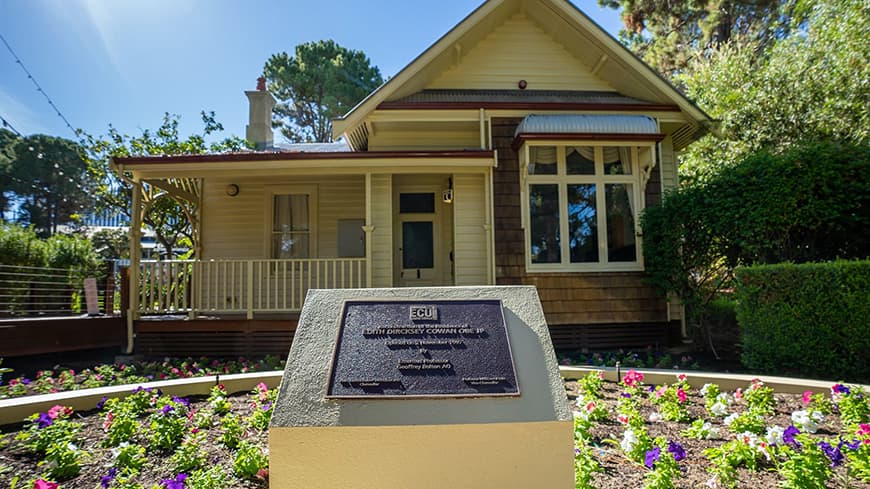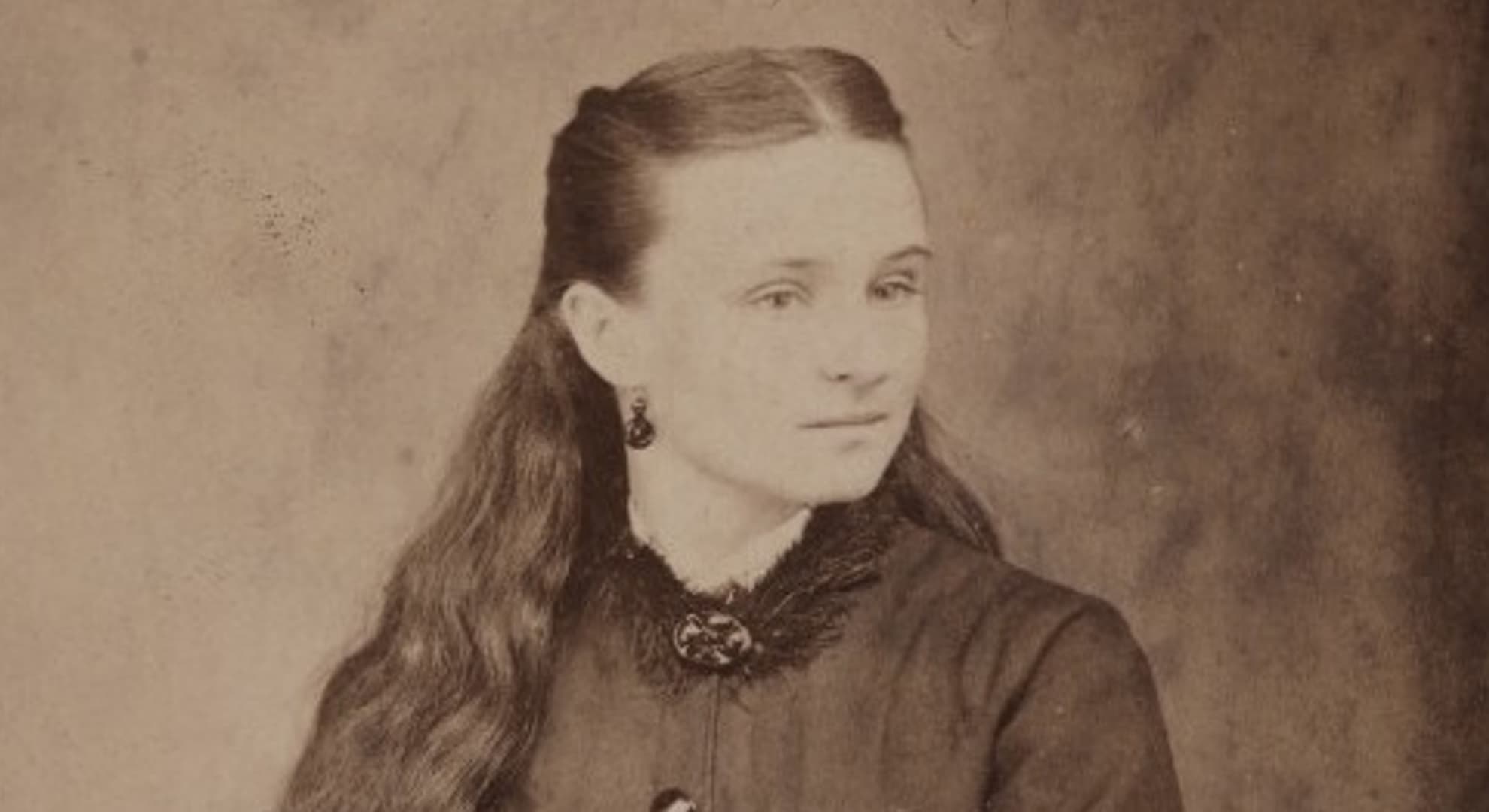On 2 August we celebrate Edith Dircksey Cowan OBE's birthday, a time for us to reflect on our University's honoured namesake and what an incredible pioneer she was for women's rights and educational progress in our country.
Why not use her birthday to be inspired by her courageous story and learn more about how she transformed lives and enriched society with her work that is still lighting the way. The University has embraced Edith's values of inclusion and equity that saw her dedicate her life to fighting to improve conditions for women, children, families, the poor, the under-educated and the elderly.
"Edith is honoured in many ways throughout the fabric and culture of the University – a fitting tribute to an inspirational woman with a pioneering spirit," said former Vice-Chancellor Professor Steve Chapman.
"Edith's commitment to public education, health and social justice issues made a major contribution to the status and welfare of women and children, in fact, we can thank her for many of the rights and services that we now take for granted."
 A young Edith, as a bride, as a wife and a mother of five.
A young Edith, as a bride, as a wife and a mother of five.
From hardship to leadership – Strong stock
Edith Dircksey Brown was born of pioneering stock into WA’s burgeoning colonial times near Geraldton in 1861, herself the product of a violent and traumatic childhood that left her orphaned at just 15 years old. Married at 18 to James Cowan, they built their family home at 71 Malcolm Street, West Perth in 1883 that became a gathering place for her advocacy meetings. That quaint weatherboard house now sits proudly overlooking the lake on ECU's Joondalup Campus, continuing her legacy of building opportunity for others, it now houses her late grandson, Peter Cowan, Writer's Centre. Edith raised five children in these harsh colonial times while fighting tirelessly in the face of hostile opposition for the rights of others, showing her to be an amazingly brave and special person – a true leader ahead of her time. As an empowering inspiration to older women today, Edith was already 60 years old and married with five adult children, she rewrote history by being elected to parliament.
Way ahead of her time
Her women's rights advocacy is legendary: Edith spent a life-time leading campaigns to improve the rights and status of women and children to ensure equal citizenship between the sexes.
While Edith Cowan is most famously known as the first woman to be elected to an Australian parliament, making her one of the first women to be elected to a British parliament in the world, this was only one of many outstanding contributions she made to our State.
She was integral to helping Western Australian women be among the first in the world to secure the right to vote and was responsible for the Women's Legal Status Bill in 1923, allowing women to work in the legal and other professions for the first time. Edith was a true believer that men and women could work collaboratively.
Bold and radical agenda
Edith's campaign platform held a bold and radical agenda that included that sex education be taught in schools, a fair rents bill, a housing scheme, state kitchens, child endowment payments to mothers, day nurseries, playgrounds, kindergartens and improved conditions for the Children's Court.
She also wanted married and unmarried mothers treated equally, working at House of Mercy, a refuge for unmarried mothers, and championing a bill [Guidance of Infants Act (1922)] that allowed women to apply to the courts for adequate maintenance if their husbands left them. She also argued that a woman should be legally entitled to a share of her husband's income.
Cowan supported free public education, including education that addressed all aspects of health and sexuality. In her booklet, Light! Light! Let There Be More Light! she predicts that prudery would soon be replaced by knowledge, and that 'the day of better methods is dawning, therefore, let all parents share in opening the windows to that Daylight which still exists … for it is Light alone which can disperse the Darkness of ignorance.'
The good fight
Edith founded organisations such as the Women’s Service Guild, the Karrakatta Club and Ngala, where she fought for our first maternity hospitals with trained midwives, advocated for women officers in court and become one of the first women justices.
Edith helped found the Children's Protection Society, which was the precursor of the first Children's Court, where in 1915 she became one of the first women to be appointed to its bench. She objected to children being seen as criminals and wanted to change the court’s approach from confrontational to consultative to work to understand the underlying problems which may have led to the offence. It is thought that her dedication to the welfare of children and their mothers could have been the result of her own traumatic childhood which saw her orphaned by the age of 15.
On 2 August 1892, Cowan even co-founded the Western Australian Society for the Prevention of Cruelty to Animals, forming the first committee of the RSPCA which had a membership fee of one shilling.
It seemed there was no just cause she was not in the good fight for.
 Edith Cowan was a remarkable woman.
Edith Cowan was a remarkable woman.
World War I, Red Cross and an OBE
During World War I, Edith Cowan increased her charity work. She chaired the Soldiers' Welcome Committee and the Soldiers' Institute Committee. She was vice-president for the Divisional Committee of Foodstuffs for soldiers on hospital ships and convalescent homes.
Edith worked in a variety of positions for the Red Cross, working to provide supplies to the Anzac troops, and for other war services, including the Maimed and Limbless Soldiers appeal. She also collected food and clothing and coordinated efforts to care for returned soldiers throughout the war.
As a foundation member of the Divisional Committee in Western Australia, she was one of the first women on the executive committee. She became vice president and later president of the Central Branch, as well as a member of the Comforts Committee. She travelled extensively throughout Western Australia speaking to a large number of branches. She was also chair of the Greater Perth Red Cross Appeal Committee.
Edith was a strong pro-conscription campaigner during the war and an active member of the Perth recruiting committee. She was instrumental in setting up the Welcome Soldiers Institute in 1916, to care for those returning from WW1. This organisation later became the Returned Soldiers League – The RSL.
For her war work she was appointed the Order of the British Empire - Officer (Civil) (OBE) in 1920
The Karrakatta Club – "let us be judged by our actions"
Perth in 1894 was only just out of its struggling British Colony status, having achieved self-government in 1891, when its population was only 8,500. There was very little education available for women, and health care was primitive, with few hospitals and even fewer trained staff. There was still no electricity, little transport and only very slow communication.
 Pioneer members of the Karrakatta Club: Mrs Lawrence, Mrs HD Holmes, Mrs JG Foulkes, Mrs James Cowan, Mrs Oct. Burt, Miss Helen Ferguson, Miss JA Nisbet, Mrs OL Haines. Photo Bartletto, Perth (Photographer) 1890s, Royal Western Historical Society.
Pioneer members of the Karrakatta Club: Mrs Lawrence, Mrs HD Holmes, Mrs JG Foulkes, Mrs James Cowan, Mrs Oct. Burt, Miss Helen Ferguson, Miss JA Nisbet, Mrs OL Haines. Photo Bartletto, Perth (Photographer) 1890s, Royal Western Historical Society.
In 1894 Edith was one of the founders of the first women's 'social club' in Australia – the Karrakatta Club – where women could gather to debate current affairs and social justice issues. The name 'Karrakatta' was chosen, thought at the time to mean, 'Hill of Fire', it was adopted as a mark of respect to the traditional owners of the land.
Edith became president of the Karrakatta Club, where she was central in winning the fight for women in Western Australia to be given the right to vote in 1899. Edith authored the club's motto, Spectemur Agendo, which means "let us be judged by our actions" and she lived by the adage with her countless contributions to the community.
The Club is still following their founders’ commitment to the cause of empowerment for women – read more about the what Karrakatta Club do today.
Shock win: 'First Australian Lady Parliamentarian' – 'no fit place for a woman'
Edith Cowan's win was a shock to all, including her – it made her not only the first woman to be elected to an Australian parliament, but one of the first women to be elected to a British parliament in the world. She won the West Perth seat by 46 votes on 12 March 1921.
Voting was not compulsory at the time however there was a turnout of 69% of voters.
 'How to vote cards for elections held on March 12, 1921 and March 22, 1924.'
Image courtesy of the State Library of Western Australia: ACC 9587AD/120.1.
'How to vote cards for elections held on March 12, 1921 and March 22, 1924.'
Image courtesy of the State Library of Western Australia: ACC 9587AD/120.1.
In an interview with the 'Daily News' (14 March 1921, page 5), headlined 'First Australian Lady Parliamentarian', she said, 'I never thought I would win. I worked hard, and my committee supported me royally, as also did my husband, but really, I never thought for one moment that I could really gain the day.'
Edith's inaugural speech
"Not the wisest thing to send a woman to parliament" On Thursday 28 July 1921, Mrs Cowan, Member for West Perth gave her maiden speech: 'a unique position' to the Legislative Assembly: "I know many people think perhaps that it was not the wisest thing to send a woman into Parliament, and perhaps I should remind hon. members that one of the reasons why women and men also considered it advisable to do so, was because it was felt that men need a reminder sometimes from women beside them that will make them realise all that can be done for the race and for the home."
In later speeches Edith asked members to consider the benefits of including more women in their political decisions:
"It is a great responsibility to be the only woman here, and I want to emphasise the necessity which exists for other women being here … If men and women can work for the State side by side and represent all the different sections of the community, and if the male members of the house would be satisfied to allow women to help them and would accept their suggestions when they are offered, I cannot doubt that we should do very much better work in the community than was ever done before."
'Bitterness and ridicule' that plagued her public life
Edith was frequently told that she was 'a disgrace to women' and should be home looking after her husband and children, despite the fact they were already adults. To the great credit of some of the male supporters in this tumultuous time of change, Edith’s husband, James Cowan 'worked tirelessly' for her campaign.
The initial press response was demeaning with caustic caricaturing of Edith as a housewife, complete with mop and bucket. Cartoons in The Bulletin portrayed Edith Cowan interrupting the important affairs of parliament with a woman's `housewifely instincts’.
 Cartoons depicting caricatures of Edith Cowan in The Bulletin, 1921.
Cartoons depicting caricatures of Edith Cowan in The Bulletin, 1921.
Despite the attempted stereotyping, Edith Cowan was a forceful and effective parliamentarian.
She fought with a radical agenda for the day and achieved the rare feat of having two private member's bills passed.
Lighting the way
Cowan lost the 1924 and 1927 elections. However, she had already paved the way for women.
The next woman to step through the door was May Holman, first elected in 1925 and the first female Labour parliamentarian in the world. She was to occupy the seat of Forrest for the next fourteen years, at a time when Western Australia was at the forefront of the Australian women's movement.
May Holman was the first woman in the British Empire to hold a seat for ten years, a trail blazed by Edith Cowan.
Happy Birthday Edith, you still light our way and inspire our University community every day – 163 years later!
 Edith Cowan University purchased Edith Cowan’s family home from 1919 with the assistance of the West Coast TAFE it was reconstructed on the Joondalup Campus, the house in 1991. It was opened in November 1997 by Emeritus Professor Geoffrey Bolton, AO, and is now used by the Peter Cowan Writers' Centre, supporting new writers.
Edith Cowan University purchased Edith Cowan’s family home from 1919 with the assistance of the West Coast TAFE it was reconstructed on the Joondalup Campus, the house in 1991. It was opened in November 1997 by Emeritus Professor Geoffrey Bolton, AO, and is now used by the Peter Cowan Writers' Centre, supporting new writers.

 A young Edith Cowan (Author unknown, public domain, via Wikimedia Commons).
A young Edith Cowan (Author unknown, public domain, via Wikimedia Commons).


